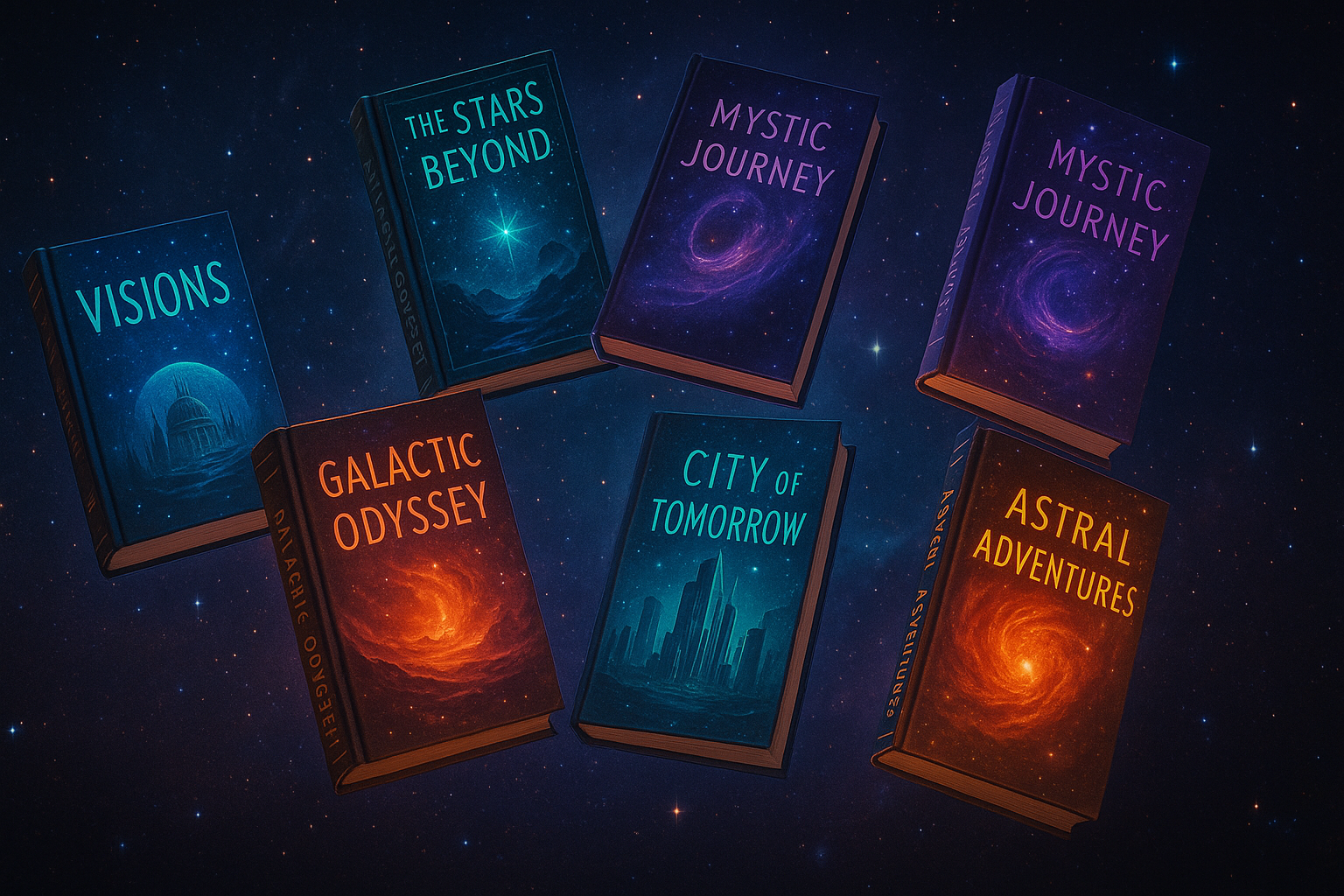
Exploring the intersection of consciousness, memory, and quantum reality.
Since its release, Quantum Memories has captivated readers with its intricate exploration of consciousness, memory, and the nature of reality itself. We sat down with the author to discuss the inspiration behind this mind-bending novel, the research that went into crafting its scientific foundation, and what it means to explore the deepest questions of human existence through science fiction.
"The question isn't whether consciousness creates reality or reality creates consciousness—it's whether that distinction even matters when you're dealing with quantum mechanics."
— From Quantum Memories
The Genesis of an Idea
Aphelion Press:
What sparked the initial idea for Quantum Memories? Was there a particular moment or concept that made you think, "This needs to be a story"?
Author:
It actually started with a nightmare I had about forgetting my own name. I woke up with this profound sense of displacement—who are you if you can't remember who you are? But then I started thinking about it from a quantum perspective. If consciousness is quantum mechanical, as some theories suggest, then memory isn't just storage—it's an active process of quantum state collapse.
I became obsessed with the idea that every time we remember something, we're not just accessing a file—we're collapsing quantum possibilities into a single experienced reality. What if someone could manipulate that process? What if memories could exist in superposition, and you could experience multiple versions of your past simultaneously?
The Science Behind the Fiction
Aphelion Press:
The quantum mechanics in your novel feel incredibly authentic. How much research went into understanding the scientific concepts you're exploring?
Author:
I spent about two years just reading—everything from Roger Penrose's work on quantum consciousness to Stuart Hameroff's research on microtubules in neurons. I wanted to understand not just the popular science explanations, but the actual mathematics and experimental evidence.
The fascinating thing is that consciousness remains one of the hardest problems in science. We don't really know how subjective experience arises from objective neural activity. Quantum mechanics offers some intriguing possibilities—the idea that consciousness might be fundamental to the universe rather than emergent from complexity.
Of course, I took significant creative liberties. The technology in the book is speculative, but it's grounded in real theoretical frameworks. I wanted readers to feel like this could be possible, even if we're not there yet.
Memory as Identity
Aphelion Press:
One of the most compelling aspects of the novel is how it explores memory as the foundation of identity. Your protagonist struggles with the question of whether she's the same person when her memories are altered. What drew you to this philosophical territory?
Author:
We like to think of ourselves as continuous beings, but neuroscience suggests otherwise. Every seven years, most of the atoms in your body have been replaced. Your neurons are constantly forming new connections and pruning old ones. In a very real sense, you're not the same person you were a decade ago.
Memory is what creates the illusion of continuity. But what if that's all it is—an illusion? The protagonist's journey is really about confronting the possibility that the self is just a story we tell ourselves, and that story can be rewritten.
I was also interested in exploring trauma and healing from this perspective. If painful memories could be edited or removed, would you still be you? Is suffering an essential part of human identity, or is it just something we've convinced ourselves we need to carry?
The Writing Process
Aphelion Press:
The narrative structure of Quantum Memories is quite complex, with multiple timeline branches and reality states. How did you approach writing something so structurally ambitious?
Author:
It was honestly a nightmare to keep track of! I had charts and diagrams covering my entire office wall, tracking which version of the protagonist knew what in each timeline. I used different colored pens for different reality branches.
But I felt the structure had to match the content. If I'm writing about quantum superposition and multiple realities, the narrative itself should reflect that uncertainty. There are sections where the reader isn't sure which version of events is "real"—because from a quantum perspective, they all are until observed.
The challenge was making it confusing in an intentional way, not just sloppy. Every branch point had to serve the story and the themes. I probably wrote three times as much material as ended up in the final book, just to understand the full scope of the quantum possibilities myself.
The Ethical Implications
Aphelion Press:
The novel raises profound ethical questions about memory manipulation and consciousness. Do you think we're prepared for the moral challenges that might arise if such technology becomes possible?
Author:
Absolutely not. We're already struggling with the ethical implications of much simpler technologies. Look at how social media algorithms manipulate our attention and emotions—imagine if they could directly alter our memories.
The book explores several scenarios: therapeutic applications for trauma victims, corporate memory modification for "employee optimization," government programs for social control. Each raises different ethical questions. Is it moral to remove someone's traumatic memories if it helps them function? What about removing memories of corporate wrongdoing? Where do we draw the line?
I think science fiction's job is to help us think through these possibilities before we face them in reality. We need to have these conversations now, while the technology is still theoretical, so we're not making it up as we go along when it becomes real.
Reader Reactions and Interpretations
Aphelion Press:
Readers have had fascinating and varied interpretations of the ending. Some see it as hopeful, others as deeply unsettling. Was this ambiguity intentional?
Author:
Completely intentional. The ending exists in quantum superposition—it's simultaneously hopeful and terrifying until the reader collapses it through their own interpretation and emotional response.
I've had readers tell me they finished the book feeling liberated—the idea that we can rewrite our own stories, that we're not prisoners of our past. Others found it existentially horrifying—the possibility that nothing we remember is real, that identity itself is an illusion.
Both reactions are valid because they reflect different ways of approaching the fundamental questions the book raises. Are you more afraid of being trapped by your memories or of losing them entirely? Your answer probably determines how you read the ending.
What's Next?
Aphelion Press:
Can you tell us about your next project? Will you continue exploring consciousness and quantum mechanics?
Author:
I'm working on something that explores quantum entanglement on a cosmic scale—what if consciousness itself could become entangled across vast distances? It's a love story, actually, about two people who share quantum-entangled neural implants and can experience each other's thoughts and emotions instantaneously, regardless of physical separation.
But it's also about isolation and connection in the digital age. When you can share someone's consciousness directly, does that bring you closer together or make you lose yourself entirely? It's called Entangled Hearts, and it should be out next year.
I seem to be drawn to these questions about the nature of consciousness and connection. Maybe it's because we're living through a time when technology is fundamentally changing what it means to be human, and science fiction gives us a way to explore those changes safely.
Final Thoughts
Aphelion Press:
Any advice for aspiring science fiction writers who want to tackle complex scientific concepts?
Author:
Do the research, but don't let it paralyze you. Science is a tool for storytelling, not the story itself. The most important thing is to find the human heart in whatever scientific concept you're exploring. Readers don't connect with quantum mechanics—they connect with characters struggling to understand their place in a quantum universe.
And remember that the best science fiction isn't really about the future—it's about the present, viewed through the lens of possibility. Use your scientific concepts to illuminate something true about the human condition right now.


